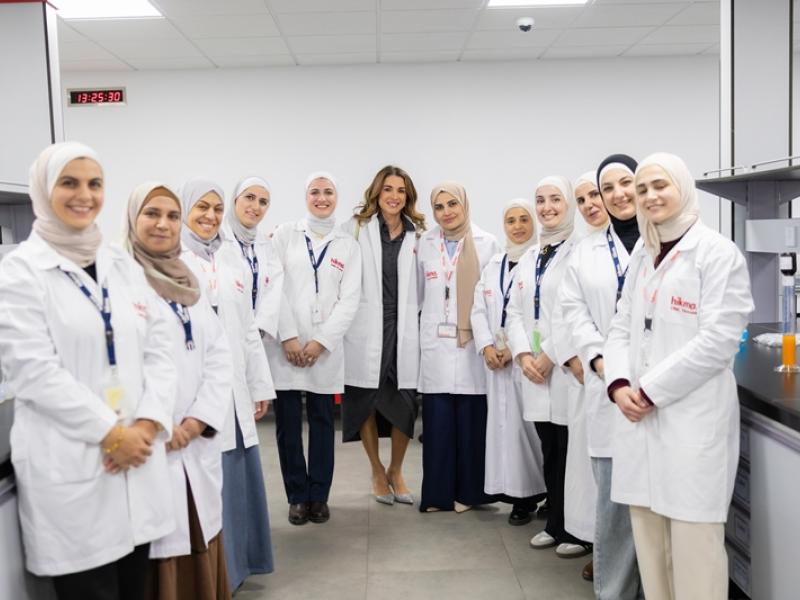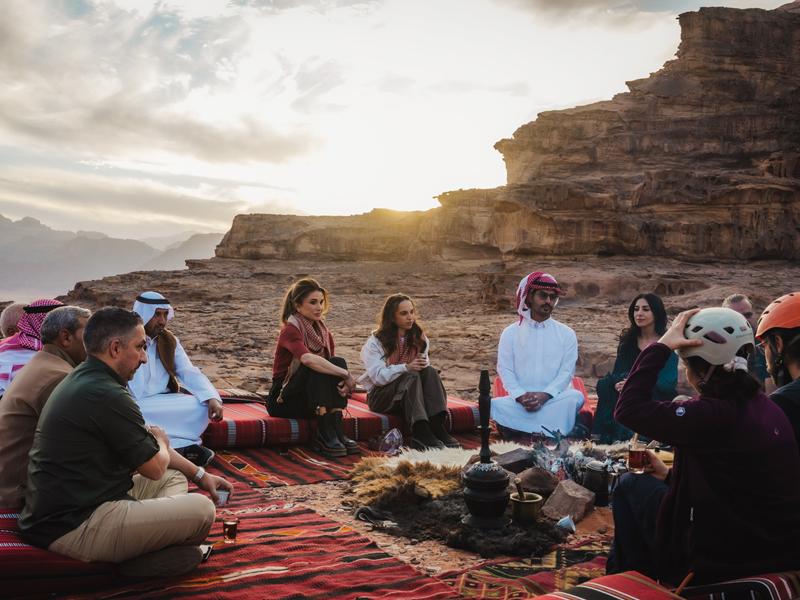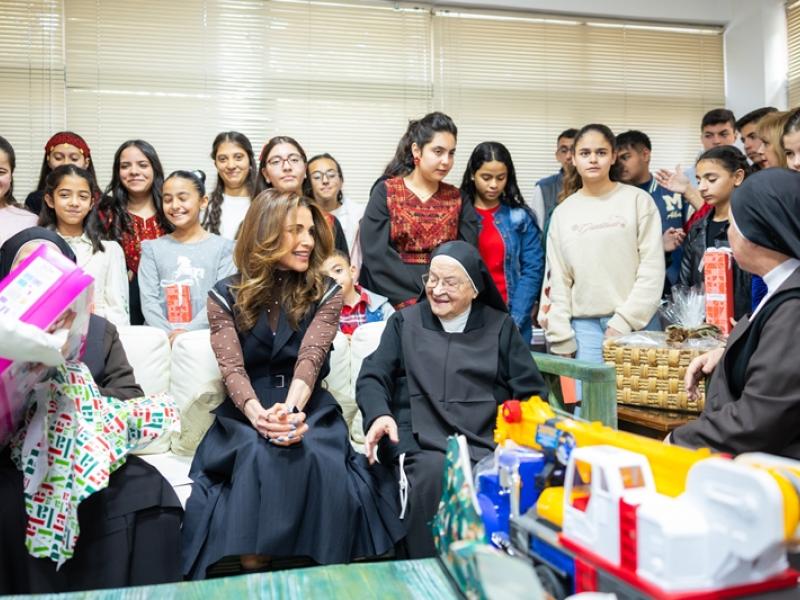(Office of Her Majesty, Press Department - Istanbul) Common global humanity, dangerous stereotypes and the need for greater understanding through human-to-human interaction were the focal areas of discussion between Queen Rania and a group of young Turkish men and women during a televised roundtable in Istanbul last week, entitled "Youth as a Bridge – Setting the Agenda for Dialogue".
In the wake of the Cartoon crisis, Queen Rania continued her efforts to reach out to youth and highlight their role in bridging the East-West divide by combating extremism through dialogue and interaction, stemming from her conviction that there is no ‘clash of civilizations’ between East and West. Rather, she argued, it is a clash of “extremists against all civilizations.”
Said Queen Rania: “…there is so much more that brings us together, than there is that separates us.”
Addressing the issue of the cartoon controversy that has dominated the headlines over the past few weeks, Queen Rania noted that “as Muslims, we view all Prophets from all religions with great reverence, and anything that vilifies them is greatly hurtful to us. It is very painful to see our great religion, with its long history of tolerance and peace, being reduce to crude caricatures drawn by a group of people who equate our religion with the actions of a few extremist minority,” adding firmly that “this is not what Islam is about”.
The youth discussed with Queen Rania the dangers of stereotyping and the difficulties associated with overcoming prejudices after they have been formed. A young university student in the panel emphasized the need to prevent prejudice before it is formulated by addressing potential biases in areas such as education and media.
The Queen noted that stereotypes “are a very convenient way of labeling people we don’t know”, and stressed the need to acquire in depth knowledge prior to making judgments, through human-to-human interaction.
“…nothing can compensate for actual human-to-human interaction…” she stated, adding that “in this day when we have access to information so easily", where, "at the click of a button, you can get information about a country, a culture", it is "very easy for us to mistake information with knowledge".
The Queen went on to warn that "information is completely different than knowledge". Knowledge, according to Queen Rania, "is information that has been contextualized, analyzed through interaction, and through placing it in the right kind of environment. …”
On the issue of leadership, furthermore, Her Majesty stressed the importance of networks and voluntary organizations which include young active leaders.
"When these leaders come together, not only are they sharing their successes and failures and their experiences but they're also forming bonds and human relations that bridge many gaps across religions, countries and cultures," she said.
Queen Rania also stressed that governments have a role in, and responsibility towards, the shaping of the future.
She said: "… the leaders have an important role to play; the governments have a very important role to play, in making sure that they provide proper education for their young people…"
That responsibility, however, does not lie with the governments or leaders alone, according to the Queen, who believes that every member of society has the ability and responsibility to contribute to the making of the future.
"University students, professors, I think all of us, at every level have something to do," she said, adding that "we have to realize that each and every one of us can make a difference…"
It is, after all, "this realization of this responsibility", and "this ability to affect change that will make people act", argued Queen Rania.
The Queen also said that we are part of a 'global culture' and that as global citizens we must act as "contributors to this culture and shapers of this culture".
Queen Rania has been a strong advocate for empowering young generations and using them to bridge the divide between East and West. Earlier this year, at the World Economic Forum in Davos, she highlighted the need to create a generation of thinkers and innovators by accelerating the many educational reform efforts currently underway, from introducing technology and innovation into the classroom, to training teachers and upgrading curriculums.


